外研(新标准)版 七年级下 Module 9 Life history Unit 3 Language in use 课件(共40张PPT)
文档属性
| 名称 | 外研(新标准)版 七年级下 Module 9 Life history Unit 3 Language in use 课件(共40张PPT) |
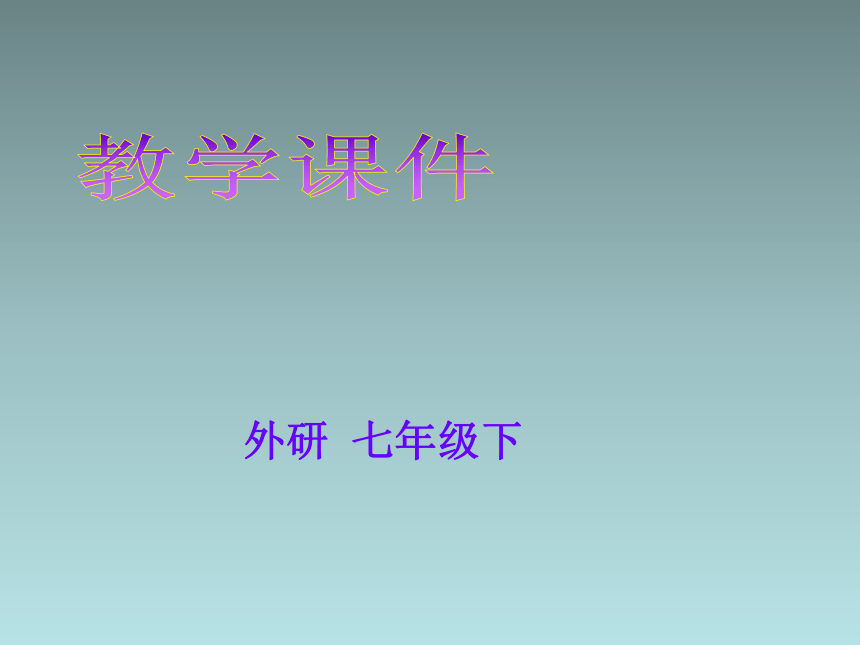
|
|
| 格式 | ppt | ||
| 文件大小 | 2.5MB | ||
| 资源类型 | 教案 | ||
| 版本资源 | 外研版 | ||
| 科目 | 英语 | ||
| 更新时间 | 2022-07-09 00:00:00 | ||
图片预览

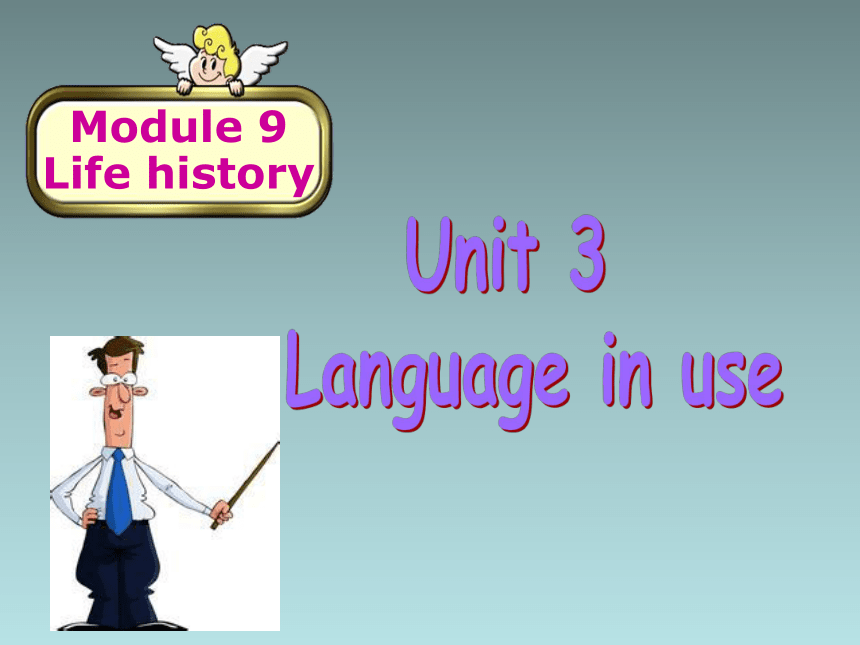
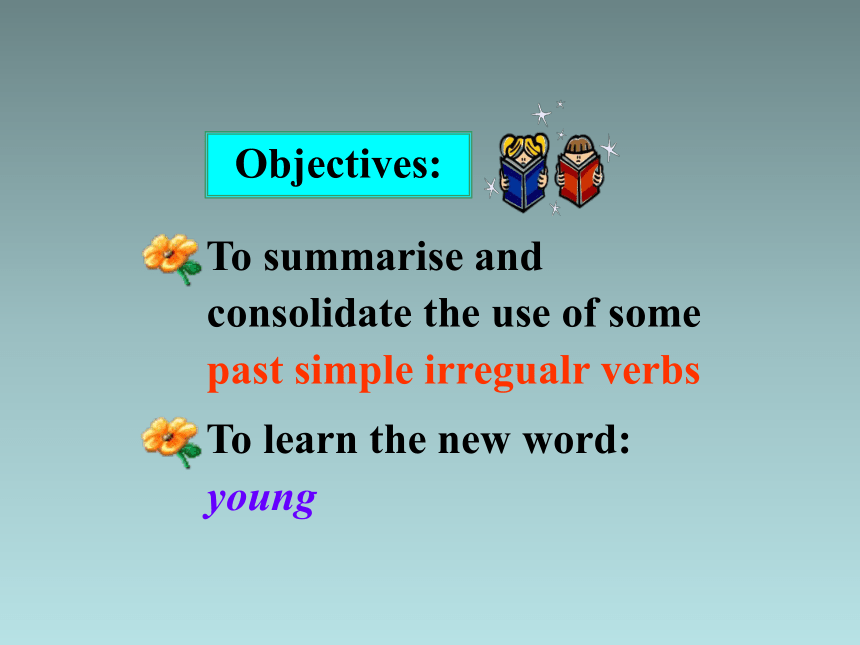
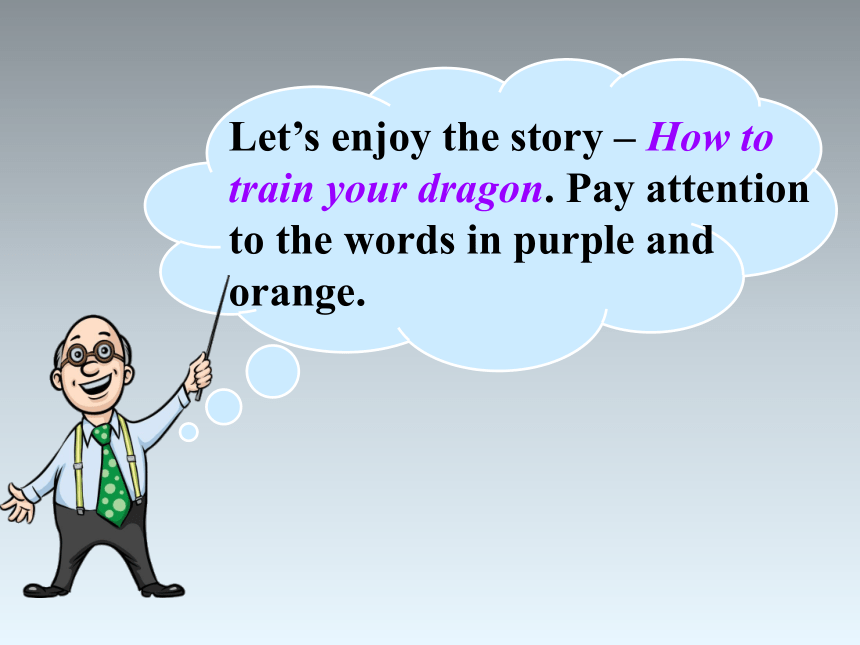
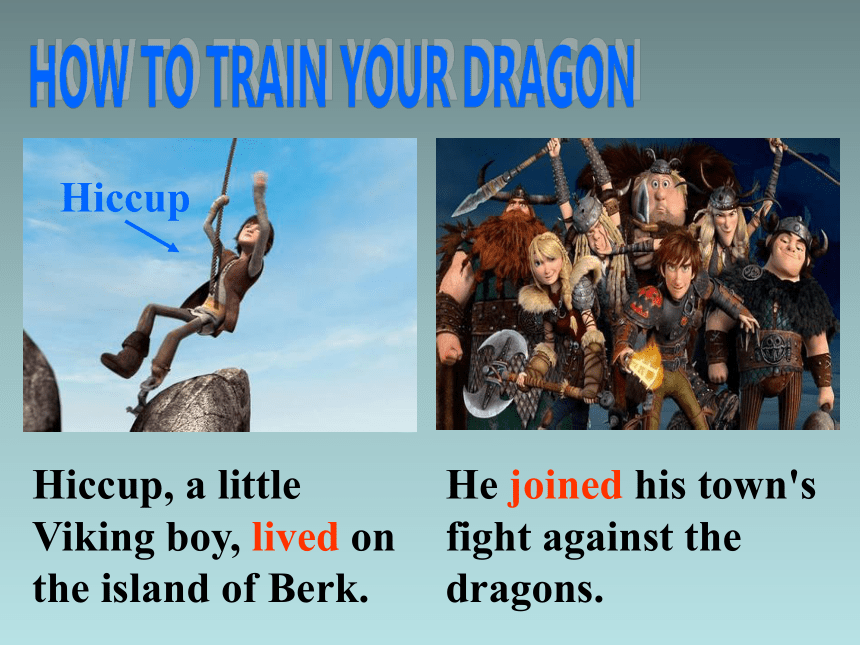
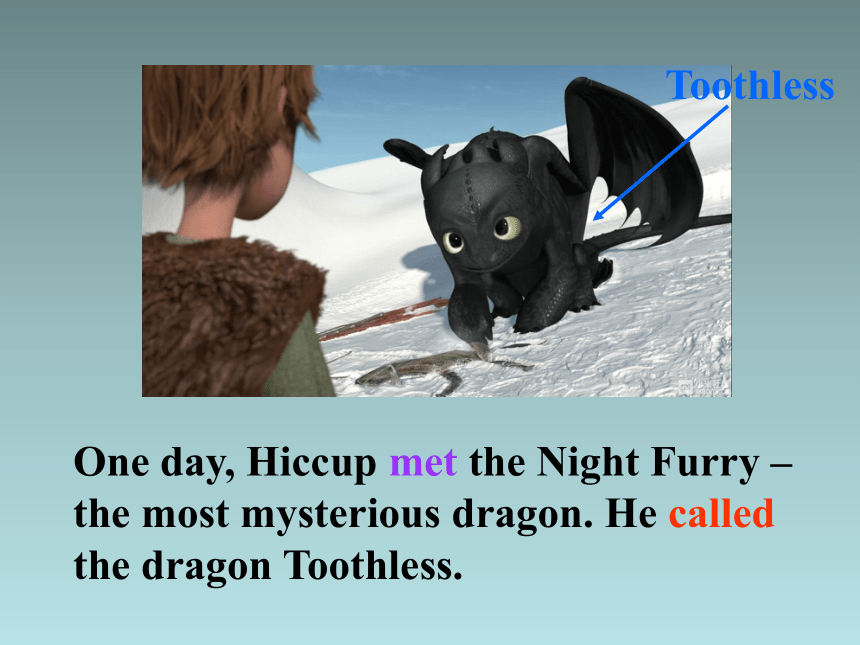
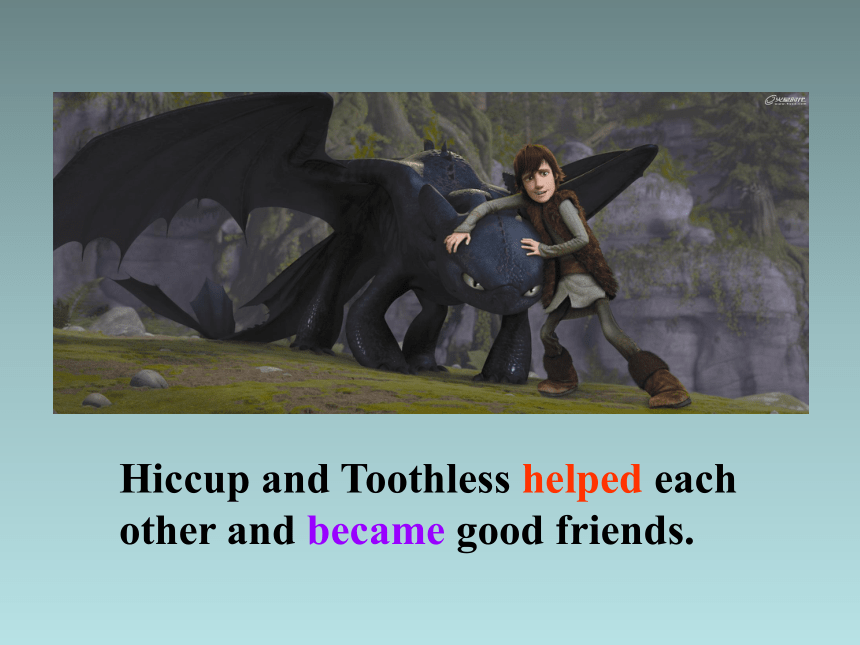
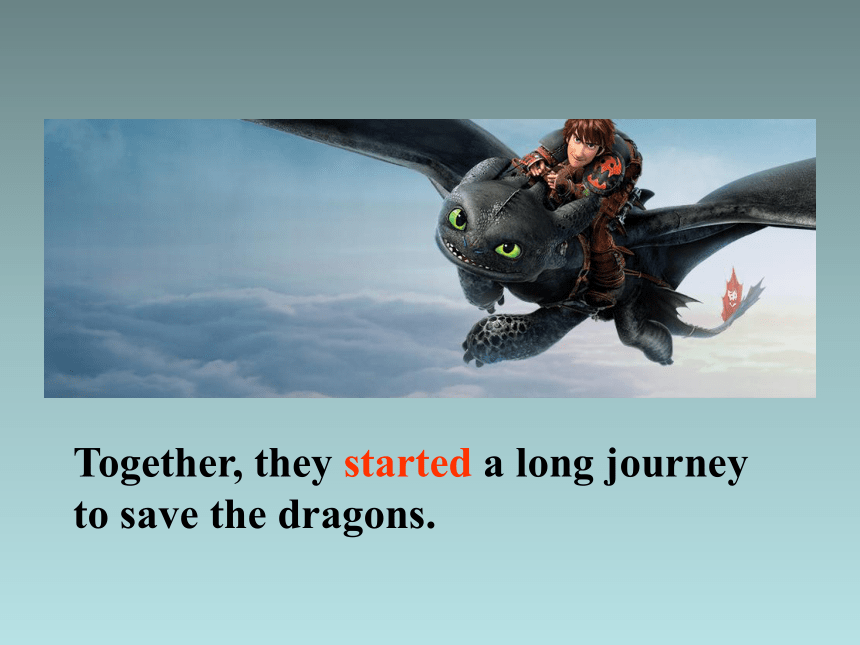
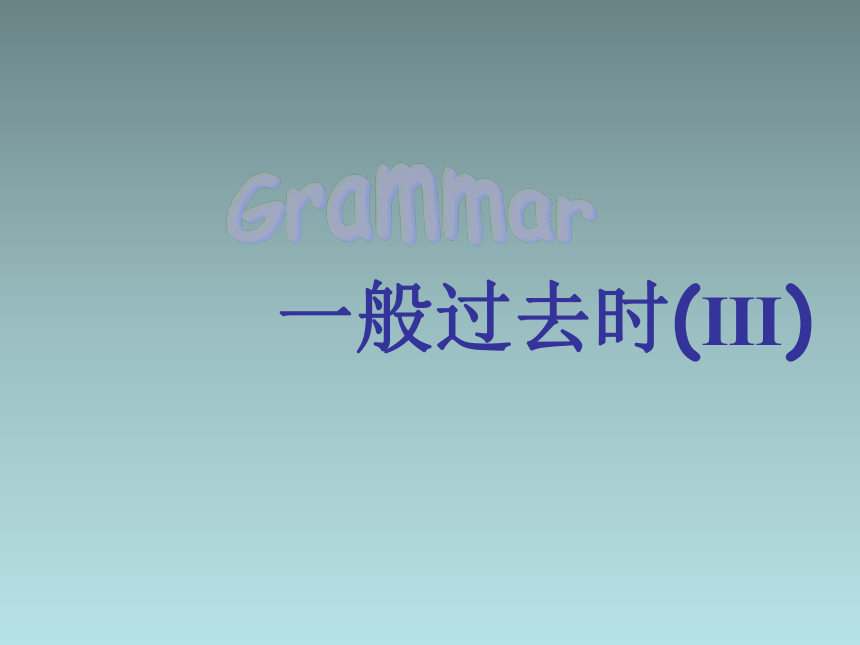
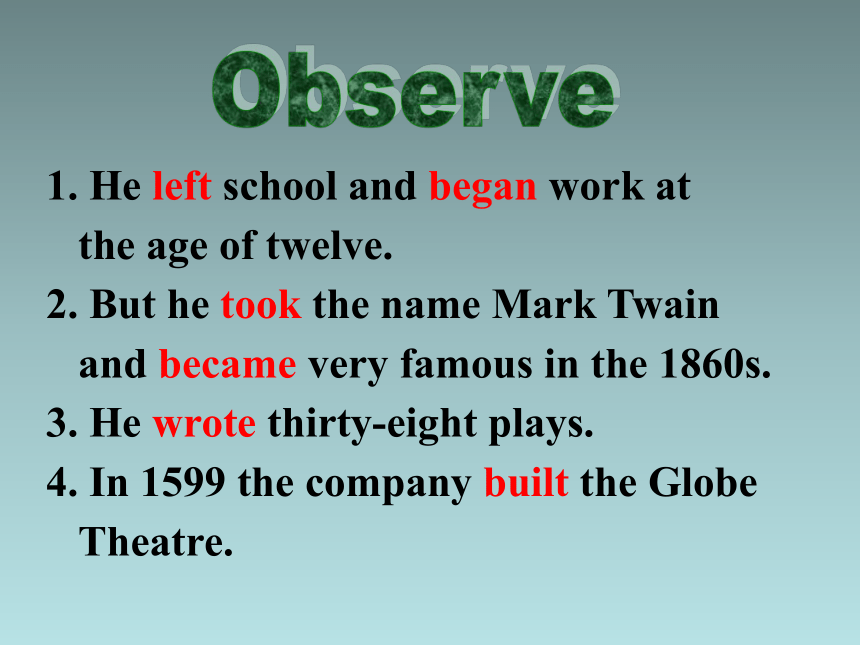
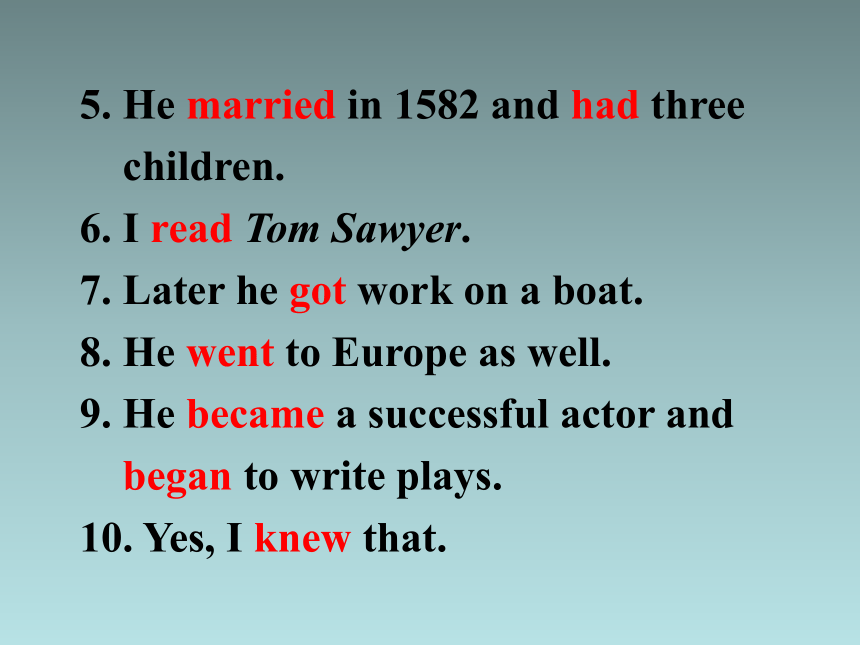

文档简介
(共40张PPT)
外研 七年级下
Module 9
Life history
To summarise and consolidate the use of some past simple irregualr verbs
To learn the new word: young
Objectives:
Let’s enjoy the story – How to train your dragon. Pay attention to the words in purple and orange.
Hiccup, a little Viking boy, lived on the island of Berk.
He joined his town's fight against the dragons.
Hiccup
One day, Hiccup met the Night Furry – the most mysterious dragon. He called the dragon Toothless.
Toothless
Hiccup and Toothless helped each other and became good friends.
Together, they started a long journey to save the dragons.
一般过去时(Ⅲ)
He left school and began work at
the age of twelve.
2. But he took the name Mark Twain and became very famous in the 1860s.
3. He wrote thirty-eight plays.
4. In 1599 the company built the Globe Theatre.
5. He married in 1582 and had three
children.
6. I read Tom Sawyer.
7. Later he got work on a boat.
8. He went to Europe as well.
9. He became a successful actor and
began to write plays.
10. Yes, I knew that.
He _____ (leave) school and ______
(begin) work at the age of twelve.
2. But he _____ (take) the name Mark Twain and _______ (become) very famous in the 1860s.
3. He _____ (write) thirty-eight plays.
4. In 1599 the company ______ (build) the Globe Theatre.
5. He _______ (marry) in 1582 and _____ (have) three children.
left
began
took
became
wrote
built
married
had
go
Ready
6. I _____ (read) Tom Sawyer.
7. Later he ____ (get) work on a boat.
8. He _____ (go) to Europe as well.
9. He _______ (become) a successful
actor and ______ (begin) to write
plays.
10. Yes, I _____ (know) that.
read
got
went
became
began
knew
规则动词变过去式,通常是直接在动词原形后加-ed或是-d,但有些动词并不遵循这一规则,我们称之为不规则动词。
由于其变化无固定规律可循,因此需要不断积累,加强记忆。
2. 只变一个元音字母:
o-a come-came become-became
i-a begin-began drink-drank give-gave
ring-rang sing-sang swim-swam
i-o win-won drive-drove ride-rode
o-e throw-threw know-knew
a-e draw-drew fall-fell
e-o get-got forget-forgot
1. 不变:
cost-cost hurt-hurt put-put
let-let read-read
不规则动词的过去式总结
3.只变一个辅音字母:
build-built has / have-had
lend-lent lose-lost
make-made send-sent spend-spent
增加一个辅音字母:
hear-heard burn-burnt
learn-learnt mean-meant
4. 改变两个元音字母:
break-broke speak-spoke
choose-chose feed-fed
meet-met feel-felt
sweep-swept wear-wore
lie-lay say-said see-saw
5. 过去式含有ought/aught:
buy-bought bring-brought
fight-fought think-thought
catch-caught teach-taught
6. 情态动词:
can-could shall-should
will-would may-might
7. 原形中有-ell:
sell-sold tell-told smell-smelt
8. 其他:
be-was/were do-did find-found
fly-flew go-went leave-left
stand-stood understand-understood
下面是一些常见的不规则动词的过去式。
be — was/were leave — left
buy— bought meet — met
come — came read — read
do — did see — saw
get — got spend— spent
have — had swim — swam
write — wrote take — took
除了变化形式不同外,含不规则动词一般过去式的肯定、否定、一般疑问句以及特殊疑问句都与规则动词的相同。
构成 例句
肯定式 主语+did I spent two days there.
否定式 主语+did not (didn’t) You did not (didn’t) come here yesterday.
一般疑问句 Did+主语+do…? Did he go to work by bus
回答 Yes,主语+did.
No, 主语+didn’t. Yes, he did.
No, he didn’t.
肯定、否定、一般疑问句及回答
构成 例句
特殊疑问句及回答 特殊疑问词+did+主语+do… Where did they swim
回答 主语+动词过去式+其他. They swam in the sea.
特殊疑问句及回答
以下部分为课本练习,供老师在对答案时选择使用。
1 Betty ________ (be born) in Quincy.
2 She_____ (go) to John Adams Primary
School.
3 She _____ (be) happy in Quincy.
4 She______ (have) lots of friends there.
5 She ___________ (come) to China in 2008.
was born
went
was
had
didn’t come
Complete the sentences about Betty’s Life. (P 58)
1
Complete the passage with the correct form of the words. (P 58)
When my father was young, he (1) _____
_____ (not have) much money. He (2)
_______ (begin) work at eight o’clock and
(3) ______ (leave) at five. When he (4) _____ (get) home, he always (5)______ (read) a book. In the evening he (6)______ (go) to the park and (7) ____ (have) a good time.
didn’t
have
began
left
got
read
went
had
2
Complete the conversation with the correct form of the words from the box. You can use the words twice. (P 58)
begin do get leave
Tony: What time did you (1) ______
school every day when you were a
boy
Tony’s dad: I (2) ____ at about five
o’clock, I think.
leave
left
3
Tony: And what time did you (3) ______
home
Tony’s dad: Oh, I (4) _____ home about
half an hour after that, at half past
five.
Tony: Did you (5) _____ a lot of homework
Tony’s dad: Yes, I (6) _______.
Tony: Did you (7) ______ to play football
when you were at school
Tony’s dad: No, I (8) _______ after you
were born.
get
got
begin
began
did
do
Complete the passage with the correct form of the words from the box. (P 59)
become go join leave start work
Deng Yaping was born in 1973 in Zhengzhou, China. She (1) _______ playing table tennis at five. She was only fifteen when she won her first match for China. She (2) _______
started
joined
4
the National Team in 1988. Deng won Olympic gold four times and she (3) ________ famous all over world. At the age of twenty-four, Deng Yaping (4) ____ the National Team and became a student. She (5) ________ very hard. She then (6) _____ to England and studied there.
became
left
worked
went
Writing about people in the past
Find about your parents’ or grandparents’ lives when they were young. (P 59)
Where did you leave
What did you often watch
What games did you play
When did you get married
How did you travel
Now make notes.
Write a timeline.
Write notes on the timeline.
5
Write a paragraph about their lives.
(P 59)
Write the paragraph.
Do some drawings.
6
Show your paragraph to the whole class. (P 59)
7
My grandparents were born in the countryside. They both came from a small village in the south of China. They went to the village school when they were young and they both worked on a farm.
They didn’t have a television but they
listened to the radio. They got married when my grandmother was 22 and my grandfather was 24. They usually travelled by bicycle and sometimes they travelled by train. They stayed on the farm all their lives. When my father left the village, my grandparents visited him in the city every year.
巧记动词过去时态
动词一般过去时, 表示过去发生的事;
谓语动词过去式,过去时间做标志;
一般动词加-ed, 若是特殊得硬记。
be用was或用were, have, has变had;
否定句很简单,主语之后didn’t添;
动词若是was/were, 否定就把not添。
疑问句也不难,did放在主语前;
谓语之前若有did, 谓语动词需还原。
【总结】
1. My sister ______ a funny story last night.
2. The film we _________ last night was very interesting and it was worth watching.
3. —When did he _____ the National Team
—In 2001.
4. The children went to the zoo
yesterday and they ______________.
join
had a good time
watch have a good time join read
read
watched
Ⅰ. 用方框中所给词的适当形式填空。
Quiz
Ⅱ. 句型转换,每空一词。
1. Cindy gets up early every morning.
(用this morning改写句子)
Cindy ____ ___ early this morning.
2. We had a party last Sunday. (改为否定句)
We _____ _____ a party last Sunday.
3. Tony went to the zoo last weekend.
(改为一般疑问句,并作肯定回答)
____ Tony ____ to the zoo last weekend
Yes, ____ ____.
got up
didn’t have
Did go
he did
4. They have a swimming lesson every
Friday. (用last Friday改写句子)
They ____ a swimming lesson last Friday.
5. Mary began to learn to play chess last weekend. (改为否定句)
Mary _____ ______ to learn to play chess last weekend.
6. Mr Smith had a lot of money.
(改为同义句)
Mr Smith ____ _____.
had
didn’t begin
was rich
1. Write a paragraph about your parents’ or grandparents’ lives.
2. Review the grammar we’ve learnt today.
3. Finish the exercises in Learning English.
外研 七年级下
Module 9
Life history
To summarise and consolidate the use of some past simple irregualr verbs
To learn the new word: young
Objectives:
Let’s enjoy the story – How to train your dragon. Pay attention to the words in purple and orange.
Hiccup, a little Viking boy, lived on the island of Berk.
He joined his town's fight against the dragons.
Hiccup
One day, Hiccup met the Night Furry – the most mysterious dragon. He called the dragon Toothless.
Toothless
Hiccup and Toothless helped each other and became good friends.
Together, they started a long journey to save the dragons.
一般过去时(Ⅲ)
He left school and began work at
the age of twelve.
2. But he took the name Mark Twain and became very famous in the 1860s.
3. He wrote thirty-eight plays.
4. In 1599 the company built the Globe Theatre.
5. He married in 1582 and had three
children.
6. I read Tom Sawyer.
7. Later he got work on a boat.
8. He went to Europe as well.
9. He became a successful actor and
began to write plays.
10. Yes, I knew that.
He _____ (leave) school and ______
(begin) work at the age of twelve.
2. But he _____ (take) the name Mark Twain and _______ (become) very famous in the 1860s.
3. He _____ (write) thirty-eight plays.
4. In 1599 the company ______ (build) the Globe Theatre.
5. He _______ (marry) in 1582 and _____ (have) three children.
left
began
took
became
wrote
built
married
had
go
Ready
6. I _____ (read) Tom Sawyer.
7. Later he ____ (get) work on a boat.
8. He _____ (go) to Europe as well.
9. He _______ (become) a successful
actor and ______ (begin) to write
plays.
10. Yes, I _____ (know) that.
read
got
went
became
began
knew
规则动词变过去式,通常是直接在动词原形后加-ed或是-d,但有些动词并不遵循这一规则,我们称之为不规则动词。
由于其变化无固定规律可循,因此需要不断积累,加强记忆。
2. 只变一个元音字母:
o-a come-came become-became
i-a begin-began drink-drank give-gave
ring-rang sing-sang swim-swam
i-o win-won drive-drove ride-rode
o-e throw-threw know-knew
a-e draw-drew fall-fell
e-o get-got forget-forgot
1. 不变:
cost-cost hurt-hurt put-put
let-let read-read
不规则动词的过去式总结
3.只变一个辅音字母:
build-built has / have-had
lend-lent lose-lost
make-made send-sent spend-spent
增加一个辅音字母:
hear-heard burn-burnt
learn-learnt mean-meant
4. 改变两个元音字母:
break-broke speak-spoke
choose-chose feed-fed
meet-met feel-felt
sweep-swept wear-wore
lie-lay say-said see-saw
5. 过去式含有ought/aught:
buy-bought bring-brought
fight-fought think-thought
catch-caught teach-taught
6. 情态动词:
can-could shall-should
will-would may-might
7. 原形中有-ell:
sell-sold tell-told smell-smelt
8. 其他:
be-was/were do-did find-found
fly-flew go-went leave-left
stand-stood understand-understood
下面是一些常见的不规则动词的过去式。
be — was/were leave — left
buy— bought meet — met
come — came read — read
do — did see — saw
get — got spend— spent
have — had swim — swam
write — wrote take — took
除了变化形式不同外,含不规则动词一般过去式的肯定、否定、一般疑问句以及特殊疑问句都与规则动词的相同。
构成 例句
肯定式 主语+did I spent two days there.
否定式 主语+did not (didn’t) You did not (didn’t) come here yesterday.
一般疑问句 Did+主语+do…? Did he go to work by bus
回答 Yes,主语+did.
No, 主语+didn’t. Yes, he did.
No, he didn’t.
肯定、否定、一般疑问句及回答
构成 例句
特殊疑问句及回答 特殊疑问词+did+主语+do… Where did they swim
回答 主语+动词过去式+其他. They swam in the sea.
特殊疑问句及回答
以下部分为课本练习,供老师在对答案时选择使用。
1 Betty ________ (be born) in Quincy.
2 She_____ (go) to John Adams Primary
School.
3 She _____ (be) happy in Quincy.
4 She______ (have) lots of friends there.
5 She ___________ (come) to China in 2008.
was born
went
was
had
didn’t come
Complete the sentences about Betty’s Life. (P 58)
1
Complete the passage with the correct form of the words. (P 58)
When my father was young, he (1) _____
_____ (not have) much money. He (2)
_______ (begin) work at eight o’clock and
(3) ______ (leave) at five. When he (4) _____ (get) home, he always (5)______ (read) a book. In the evening he (6)______ (go) to the park and (7) ____ (have) a good time.
didn’t
have
began
left
got
read
went
had
2
Complete the conversation with the correct form of the words from the box. You can use the words twice. (P 58)
begin do get leave
Tony: What time did you (1) ______
school every day when you were a
boy
Tony’s dad: I (2) ____ at about five
o’clock, I think.
leave
left
3
Tony: And what time did you (3) ______
home
Tony’s dad: Oh, I (4) _____ home about
half an hour after that, at half past
five.
Tony: Did you (5) _____ a lot of homework
Tony’s dad: Yes, I (6) _______.
Tony: Did you (7) ______ to play football
when you were at school
Tony’s dad: No, I (8) _______ after you
were born.
get
got
begin
began
did
do
Complete the passage with the correct form of the words from the box. (P 59)
become go join leave start work
Deng Yaping was born in 1973 in Zhengzhou, China. She (1) _______ playing table tennis at five. She was only fifteen when she won her first match for China. She (2) _______
started
joined
4
the National Team in 1988. Deng won Olympic gold four times and she (3) ________ famous all over world. At the age of twenty-four, Deng Yaping (4) ____ the National Team and became a student. She (5) ________ very hard. She then (6) _____ to England and studied there.
became
left
worked
went
Writing about people in the past
Find about your parents’ or grandparents’ lives when they were young. (P 59)
Where did you leave
What did you often watch
What games did you play
When did you get married
How did you travel
Now make notes.
Write a timeline.
Write notes on the timeline.
5
Write a paragraph about their lives.
(P 59)
Write the paragraph.
Do some drawings.
6
Show your paragraph to the whole class. (P 59)
7
My grandparents were born in the countryside. They both came from a small village in the south of China. They went to the village school when they were young and they both worked on a farm.
They didn’t have a television but they
listened to the radio. They got married when my grandmother was 22 and my grandfather was 24. They usually travelled by bicycle and sometimes they travelled by train. They stayed on the farm all their lives. When my father left the village, my grandparents visited him in the city every year.
巧记动词过去时态
动词一般过去时, 表示过去发生的事;
谓语动词过去式,过去时间做标志;
一般动词加-ed, 若是特殊得硬记。
be用was或用were, have, has变had;
否定句很简单,主语之后didn’t添;
动词若是was/were, 否定就把not添。
疑问句也不难,did放在主语前;
谓语之前若有did, 谓语动词需还原。
【总结】
1. My sister ______ a funny story last night.
2. The film we _________ last night was very interesting and it was worth watching.
3. —When did he _____ the National Team
—In 2001.
4. The children went to the zoo
yesterday and they ______________.
join
had a good time
watch have a good time join read
read
watched
Ⅰ. 用方框中所给词的适当形式填空。
Quiz
Ⅱ. 句型转换,每空一词。
1. Cindy gets up early every morning.
(用this morning改写句子)
Cindy ____ ___ early this morning.
2. We had a party last Sunday. (改为否定句)
We _____ _____ a party last Sunday.
3. Tony went to the zoo last weekend.
(改为一般疑问句,并作肯定回答)
____ Tony ____ to the zoo last weekend
Yes, ____ ____.
got up
didn’t have
Did go
he did
4. They have a swimming lesson every
Friday. (用last Friday改写句子)
They ____ a swimming lesson last Friday.
5. Mary began to learn to play chess last weekend. (改为否定句)
Mary _____ ______ to learn to play chess last weekend.
6. Mr Smith had a lot of money.
(改为同义句)
Mr Smith ____ _____.
had
didn’t begin
was rich
1. Write a paragraph about your parents’ or grandparents’ lives.
2. Review the grammar we’ve learnt today.
3. Finish the exercises in Learning English.
同课章节目录
- Module 1 Lost and found
- Unit 1 Whose bag is this?
- Unit 2 Are they yours?
- Unit 3 Language in use
- Module 2 What can you do ?
- Unit 1 I can play the piano
- Unit 2 I can run really fast
- Unit 3 Language in use
- Module 3 Making plans
- Unit 1 What are you going to do at the weekends?
- Unit 2 We're going to cheer the players.
- Unit 3 Language in use
- Module 4 Life in the future
- Unit 1 Everyone will study at home
- Unit 2 Every family will have a small plane.
- Unit 3 Language in use
- Module 5 Shopping
- Unit 1 What can I do for you?
- Unit 2 You can buy everything on the Internet
- Unit 3 Language in use
- Module 6 Around town
- Unit 1 Could you tell me how to get to the Nationa
- Unit 2 The London Eye is on your right.
- Unit 3 Language in use
- Revision module A
- Module 7 My past life
- Unit 1 I was born in a small village.
- Unit 2 I was born in Quincy.
- Unit 3 Language in use
- Module 8 Story time
- Unit 1 Once upon a time….
- Unit 2 Goldilocks hurried out of the house.
- Unit 3 Language in use
- Module 9 Life history
- Unit 1 He left school and began work at the age of
- Unit 2 He decided to be an actor.
- Unit 3 Language in use
- Module 10 A holiday journey
- Unit 1 What did you do?
- Unit 2 This morning we took a walk.
- Unit 3 Language in use
- Module 11 Body language
- Unit 1 They touch noses!
- Unit 2 Here are some ways to welcome them.
- Unit 3 Language in use
- Module 12 Western music
- Unit 1 It's so beautiful!
- Unit 2 Vienna is the centre of European classical
- Unit 3 Language in use
- Revision module B
